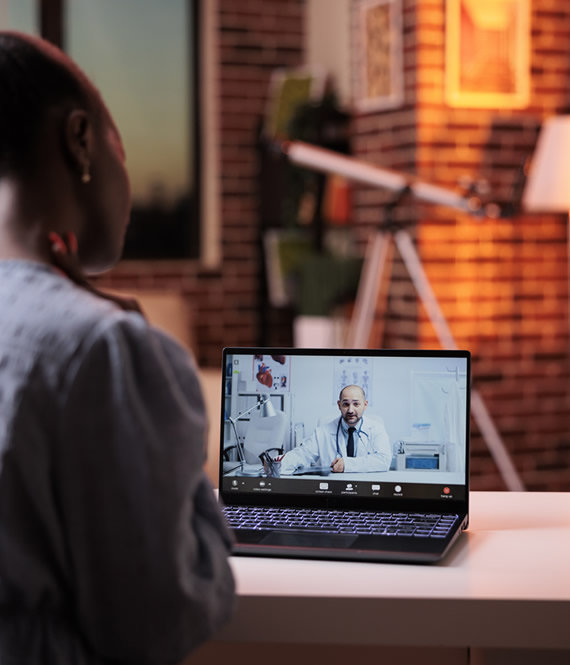
How To Properly Care For Nursing Scrubs
We recommend helpful products in our articles. Read our full disclosure here. The content on this website is not intended to be a substitute for professional advice, diagnosis, or treatment.
Nursing scrubs are a crucial part of the healthcare professionals’ wardrobe.
Serving as the first line of defense against the spread of germs and infections, they demand a specific level of attention and care.
Caring for nursing scrubs goes beyond maintaining cleanliness and a presentable look; it involves fostering an infection-free healthcare environment, encouraging personal hygiene, and prolonging the life of these essential garments.
Here are some tips on how to properly care for nursing scrubs.

Choosing High-Quality Scrubs
Before even considering various care methods, it’s vital to choose high-quality scrubs.
They should be made from durable, stain-resistant fabric that can withstand the rigors of frequent washing and wearing.
Scrubs made of a polyester-cotton blend are generally more durable and better at retaining color than 100% cotton options.
High-quality scrubs should also fit comfortably to allow ease of movement.
Moreover, they must have ample pocket space for carrying essential tools to increase their functionality in a busy healthcare setting.
Remember, investing in high-quality scrubs boosts personal comfort, performance, and overall safety in the healthcare environment.
This is why they also make excellent gift ideas for nurses.
Washing Your Scrubs
The process of washing scrubs starts with separating them from other laundry items to prevent the spread of germs and contaminants before washing them.
Here are some additional steps to take.
1. Pre-Soak Your Scrubs
Begin by soaking your scrubs in cold water before washing them.
This pre-soaking phase helps loosen any dirt or stains on the fabric.
2. Use Hot Water And Heavy-Duty Detergent
After pre-soaking, wash your scrubs in hot water with a detergent specifically formulated to combat stubborn stains and bacteria.
3. Rinse Thoroughly
When done washing, rinse your scrubs thoroughly to remove all traces of detergent, which might cause skin irritation or fabric discoloration over time.
Following these steps will not only ensure your scrubs are clean but also free from harmful bacteria or pathogens.
The goal is to maintain hygienically safe, visually clean, and comfortable scrubs.
Drying Your Scrubs
After washing your medical scrubs, it’s crucial to dry them properly.
Use the dryer’s highest heat setting to kill any remaining bacteria.
The high heat of the dryer acts as another defense against potential pathogens that might have survived the washing process.
However, make sure to avoid overloading the dryer.
Overcrowding can prevent the scrubs from drying evenly and thoroughly.
Promptly remove your scrubs from the dryer to prevent wrinkles.
If wrinkles form, they can be easily smoothed out with ironing.
Quick removal from the dryer also minimizes fabric wear and premature color fading, thus maximizing the cleanliness and longevity of your scrubs.
Some may choose to air-dry their scrubs.
If you opt for this method, make sure to do so in a clean, dust-free environment.
Hanging them up in direct sunlight can also help eliminate bacteria due to the sun’s ultraviolet light.
However, ensure the scrubs are completely dry before wearing or storing them to prevent mildew growth.
Ironing Your Scrubs
While ironing your scrubs may seem like an extra step, it offers several beneficial purposes.
Firstly, the heat from the iron can kill any leftover bacteria that survived the washing and drying process, adding another layer of sterilization.
Secondly, crisp, wrinkle-free scrubs contribute to a professional appearance, boosting self-confidence and presenting a positive image to patients and colleagues.
Here are two essential points to remember when ironing your scrubs.
1. Follow the Guidelines
Check the care label before ironing your scrubs.
Doing so will help you know the specific ironing instructions based on the fabric type.
Not all fabrics can withstand high heat, and using the wrong setting can cause damage.
2. Iron Inside Out
To preserve the color and print of your scrubs, it’s advisable to iron them inside out.
This prevents potential color fading or print damage from the direct heat of the iron.
Remember, ironing is not just about looking neat–it also contributes to the cleanliness of your scrubs and your professional image.
Storing Your Scrubs
After cleaning and drying your scrubs, proper storage is another essential step in their care.
Store scrubs separately from other clothing to avoid potential cross-contamination.
Dedicate a specific drawer or closed space exclusively for your scrubs.
Consider these tips for storage!
Fold your scrubs neatly before storing them
This not only keeps them looking professional and ready to wear but also makes it easier to spot any stains or damages that might need attention.
If possible, store your scrubs in a dry, well-ventilated area
This prevents the growth of mildew or mold, especially if there’s residual moisture left after drying.
During transportation, carry your scrubs in a sealed plastic bag, especially when bringing used scrubs home for laundry.
This prevents contact with other items, keeping them free from exposure to additional germs and bacteria.
Conclusion
Proper care of nursing scrubs extends far beyond maintaining their appearance–it’s a critical part of infection measures in healthcare settings.
By choosing high-quality scrubs, washing and drying them correctly, ironing them for extra sterilization, storing them appropriately, and replacing them when needed, healthcare professionals can ensure their scrubs contribute positively to their work environment and uphold their personal commitment to patient safety.
"We love to research problems, examine studies, analyze solutions, and share with you ideas that make life healthier. You can learn about us and our editorial standards here. Have suggestions or feedback to share? Send us a message!."













Leave a Comment